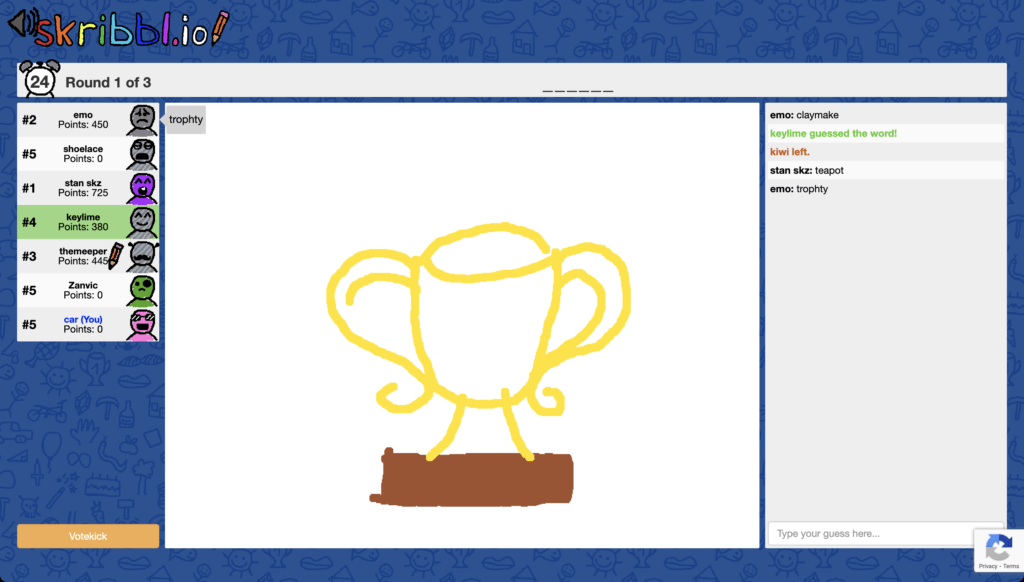For this critical play, I played skribbl (by a developer with the pseudonym @ticedev on Twitter) on the web browser. Even though this game is popular with a variety of people, its target audience is between the ages of 13 and 30 years old. Each game can take up to 12 players.

In this game, players can either be an artist or guesser. There can be 2-10 rounds. In each round, everyone takes turns being the artist. In each gameplay, similar to Pictionary, there is one artist, whose role is to draw out a given word. The guessers’ jobs are given the length of the word and have 30 seconds continually type in guesses of the word while the artist is still drawing it. As time progresses, letters from the word slowly get revealed. The faster the guesser guesses the correct word, the more points they get. The player with the most points wins.

I would say this game is a mix of fellowship and expression fun. This game works well and achieves these types of fun because it brings people together to bond over drawings, as the chat feature allows people to see other guesses and also comment on them. Additionally, given that the game is about drawing, it allows people to show off their art skills to their friends.
skribbl is fun to play because it is extremely simple and resembles Pictionary, a well-known game. It is easy for anyone with a web browser to join online or create a game space for friends to play in. Unlike normal Pictionary, the slowly-revealing letters give hints to people who do not know and make it more enticing. The scoring system also adds a sense of competition and tension because the faster a guesser can type it in correctly, the more points they get. As a result, people will want to be competing to win and get the most points.
This game could be improved by allowing artists to create their own categories and words instead of choosing from a pre-selected list. When playtesting this game, some of the words that came up were extremely niche, making it hard for me to draw and hard for the guesses to guess. This would give players/friend groups the chance to come up with more relatable words to them, creating inside jokes and bringing groups closer together.
In comparison to the other games in its genre, I would say the main difference is that there is no voting or judging—the game is centered around each player winning the next points and no judging around the artist’s drawing skills. In my opinion, skribbl seems to be a better game because it bonds groups without feeling like the game is a humor-popularity contest (with the voting aspect)—Cards Against Humanity and Apples vs. Apples’ public voting might skew some people to vote for something they did not really think was the best card because they want to fit in with the rest of the group. Additionally, there is no need for people to get vulnerable (other than exposing their art skills), so skribbl is ideal for all ranges of people, including ones that are uncomfortable sharing too much in group settings.


